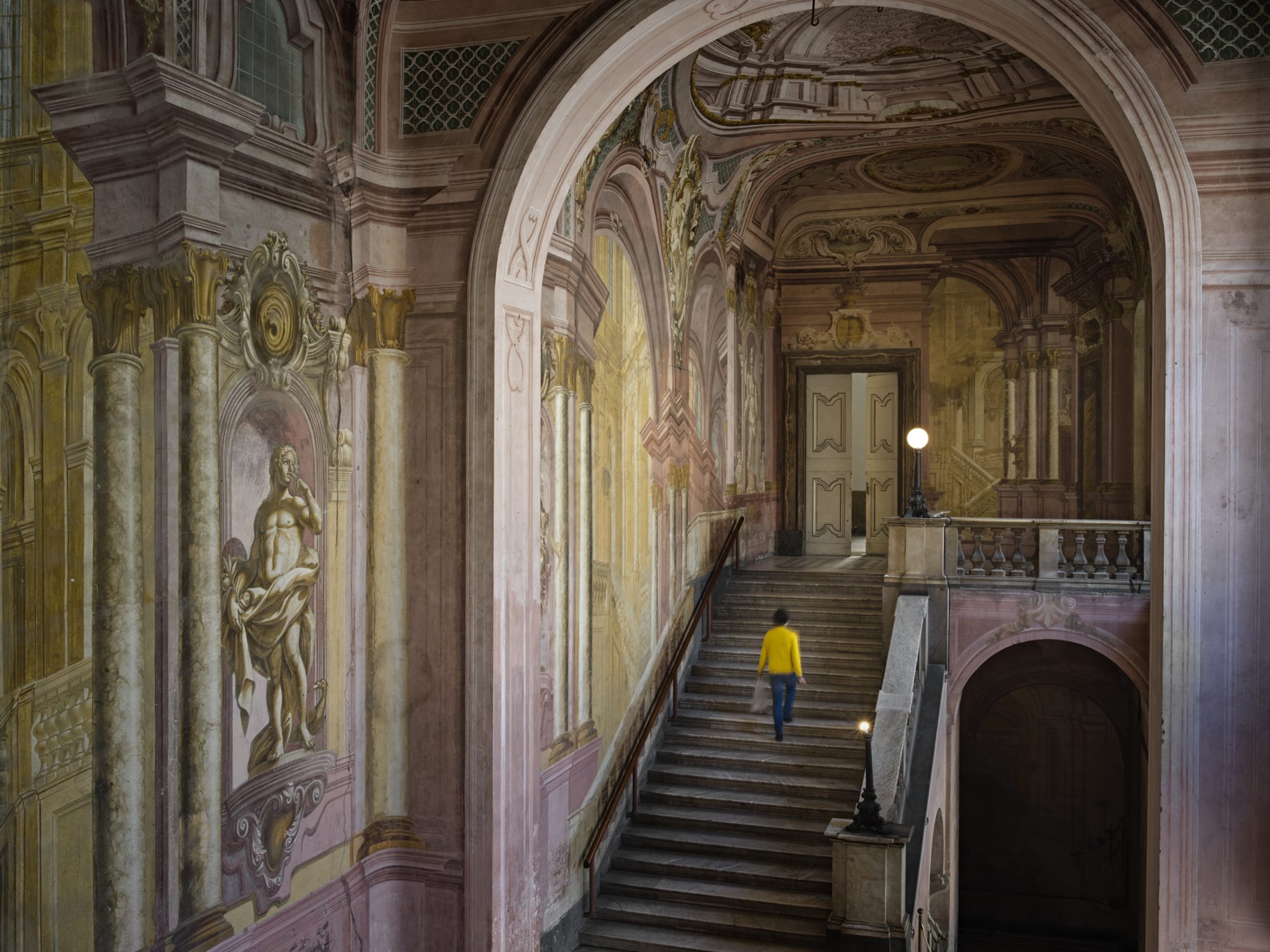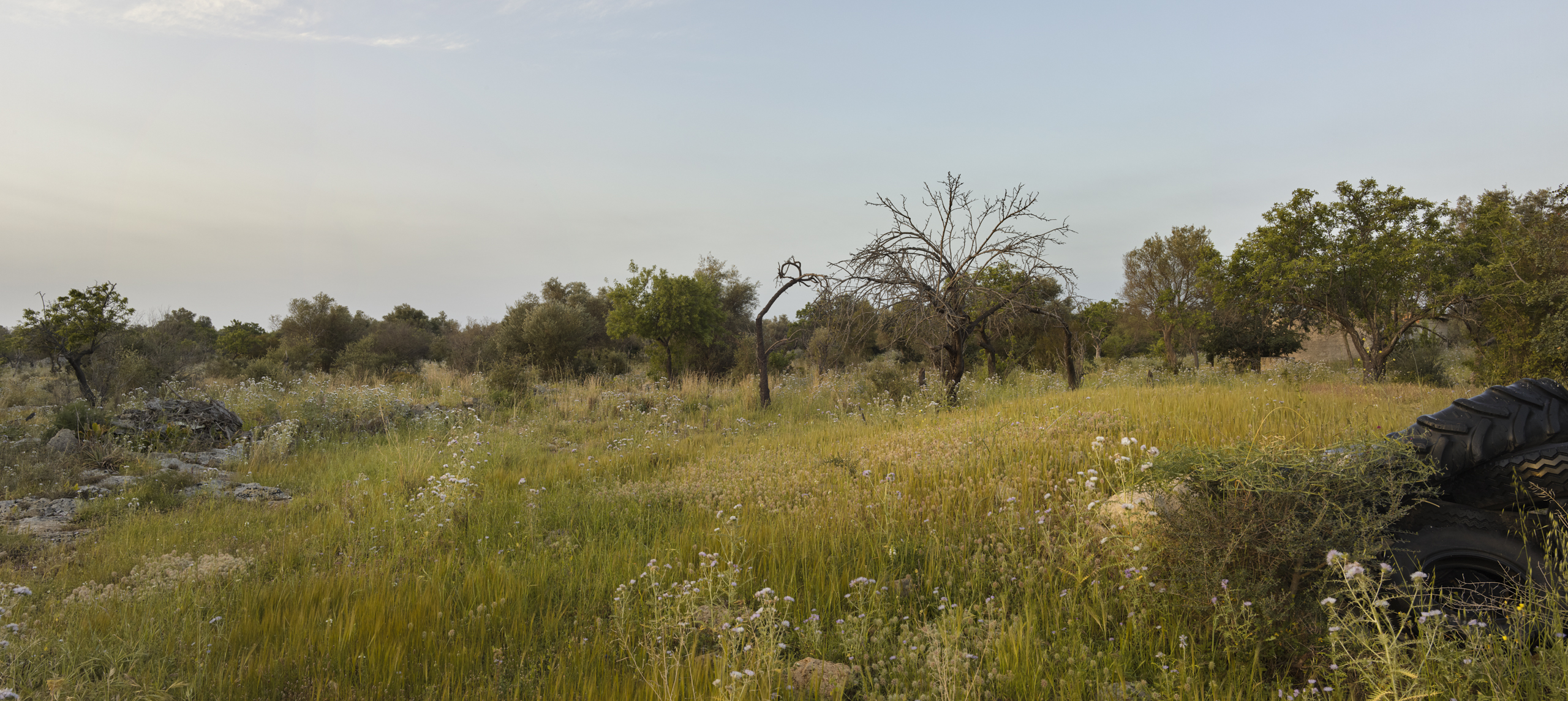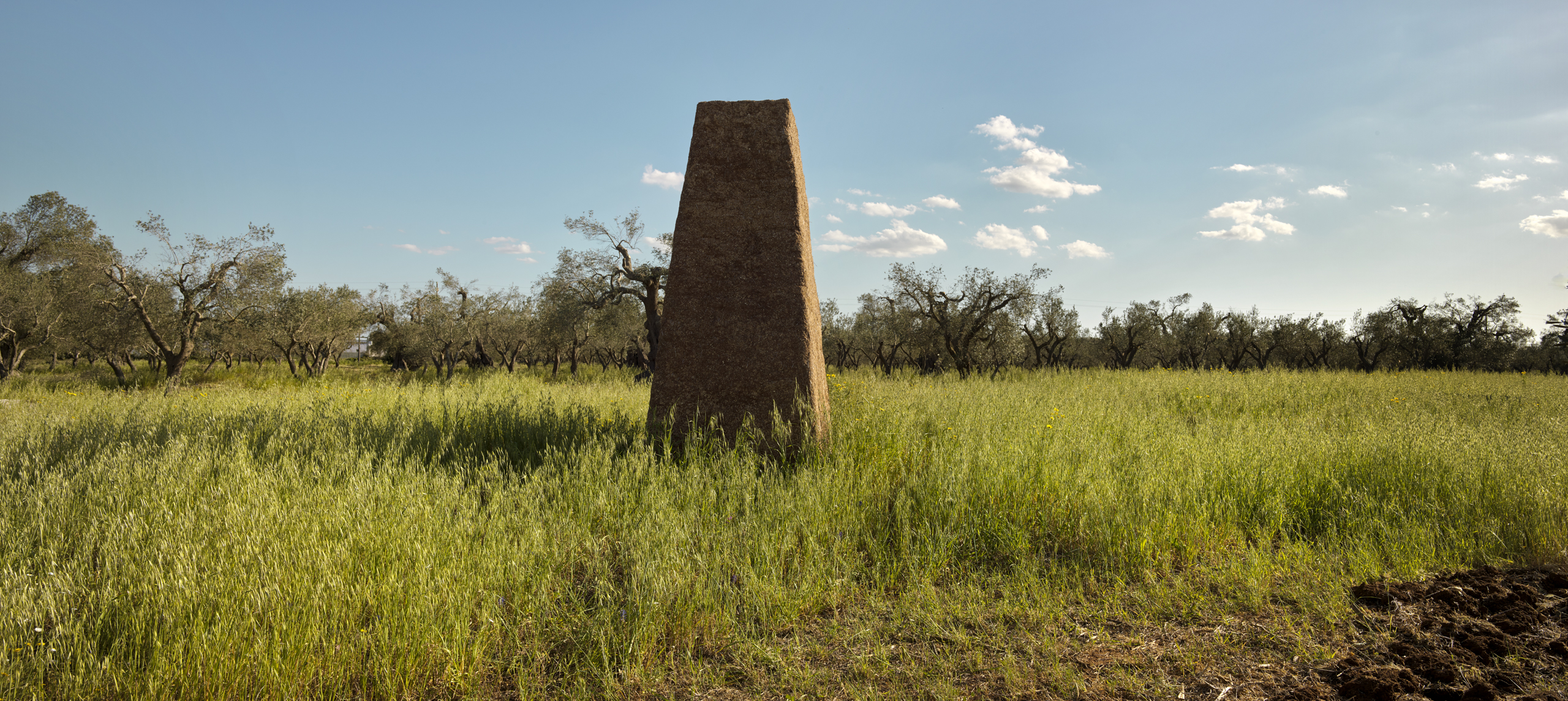
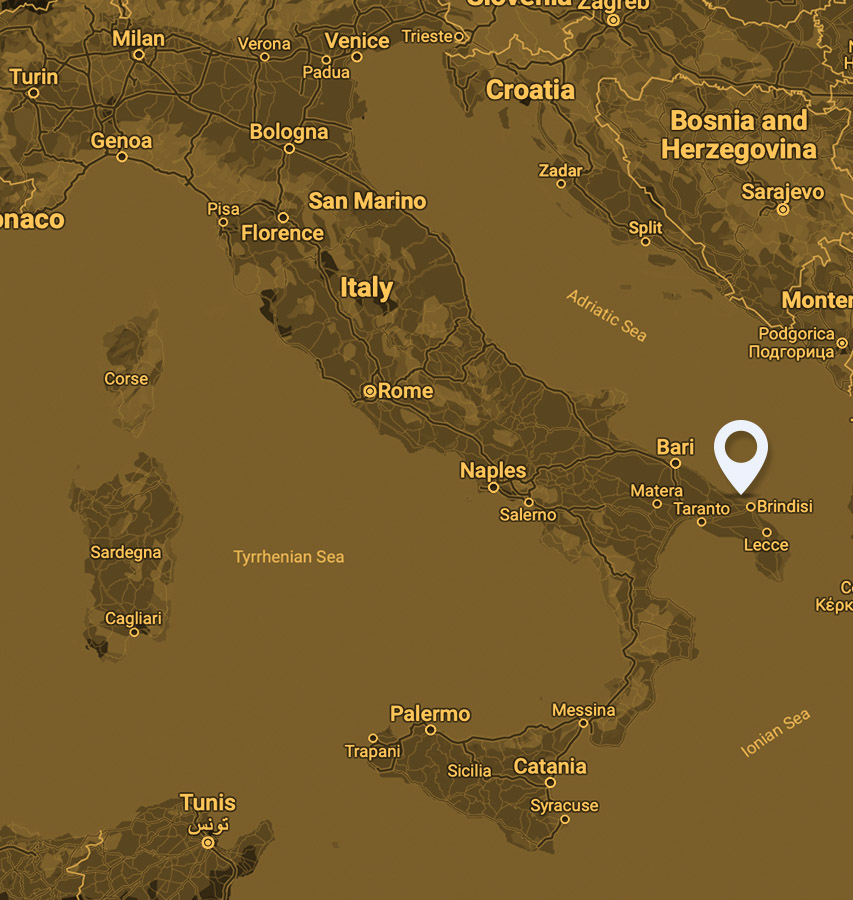
Social Agriculture
Wageningen University’s Development and Rural Innovation department is investigating new forms of social agriculture. Siw Fasting, who carried out some research on the subject in Puglia, put us in touch with several young entrepreneurs, which rendered up a number of encouraging stories about new forms of agriculture.
Social Agriculture
Europe is facing the problem of marginalization and unsustainability in agricultural regions. A trend among a new generation of farmers who are returning to the land provides hope of a new way of farming that will counteract these processes.
Xfarm, a social agriculture project in Puglia on more than 50 hectares, is a great example of this new form of social farming. The farm, which mainly grows olives and grapes, was confiscated from the mafia.
The farm is led by several people from different parts of Italy and Europe who have various, usually non-agricultural backgrounds. They collaborate intensively with other innovative farms, research institutions and universities.
Community farming
Xfarm is more than just a productive farm where olives and grapes are grown. It is also a laboratory for experimenting with new forms of agriculture, with regenerative agriculture as its starting point.
But Xfarm is above all a community farm and its most important goal is to generate employment for people who have little if any chance of finding work through the normal jobs market. It collaborates with a mental health institution and employs former prisoners.
The chicken farm is a good example. The chickens kept in the olive grove are husbanded by former prisoners and people with learning disabilities.
Xfarm is also a place for meeting and exchange, an open-air school where children can study nature and a festival site where countless activities are organized in summer.
Many of the activities are focused on the local community, but national and international exchanges also take place, including an exchange programme with farmers and entrepreneurs from North Africa.
The land, owned by the local authorities, had been maintained poorly, if at all, for years. A group of young entrepreneurs, united in a cooperative, submitted a plan and breathed new life into the farm. The production of olives, grapes and vegetables takes place within different systems, such as agriculture supported by the community, agroforestry and regenerative agriculture.
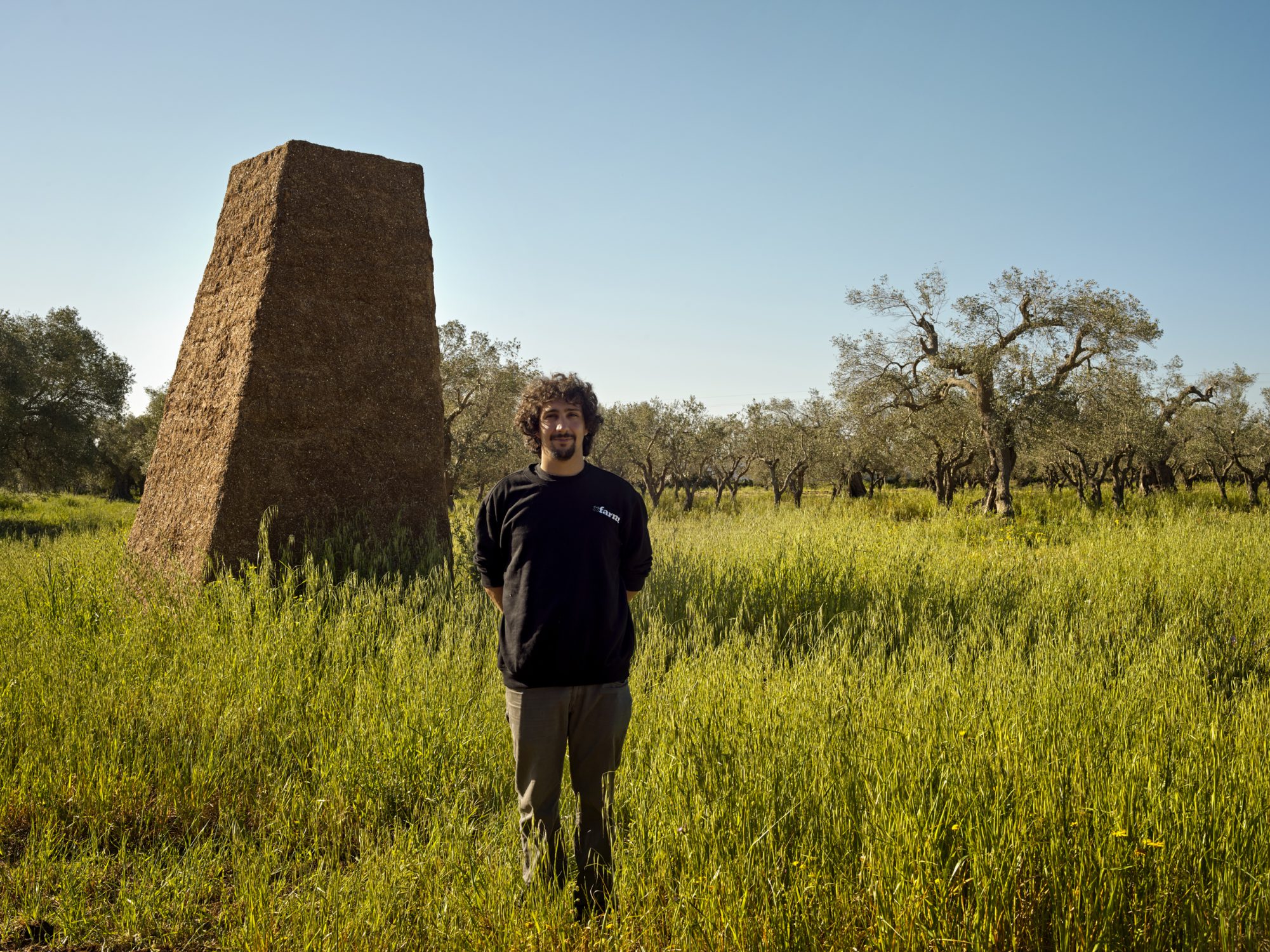
"Agriculture can be the first step towards changing society."
Jacopo Volpicelli
Ecologist
Jacopo, aged 27, was born in Turin, grew up in Baltimore, Maryland, lived in Paraquay and studied Global Sustainability Sciences in Utrecht, did his research in Brazil before returning finally to his native land.
In search of a purpose in life and what he could mean to his country, it occurred to him that agriculture is the most direct way to relate to nature, to our food, to the landscape and to its beauty. And that agriculture can be the first step towards changing society.
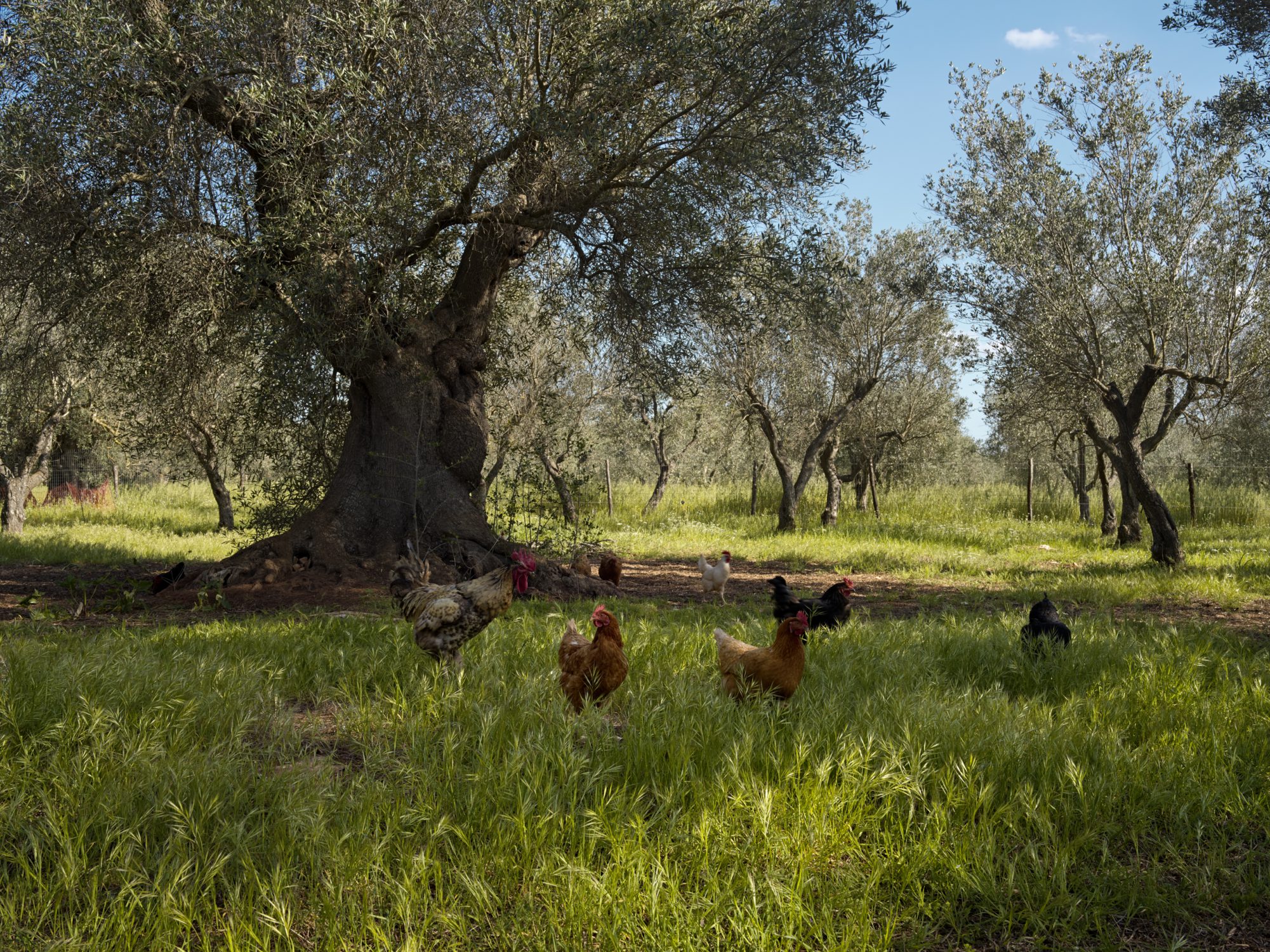
"Our main objective is to create job opportunities for disadvantaged people."
The chicken farm
It’s a beautiful, rustic image: chickens scratching about in the tall grass between the olive trees. There are now fifty of them and there need to be 249, because once you have 250 chickens or more you’re a chicken farm and the bureaucrats turn up with a stack of rules and regulations with which you need to comply.
The chickens are kept regeneratively. They are frequently moved using an ingenious system in accordance with the principle ‘the land feeds the chicken and the chicken feeds the land’. It’s a great if laborious way to keep chickens, which provides work for a former prisoner who comes to care for the birds each morning and collect the eggs.
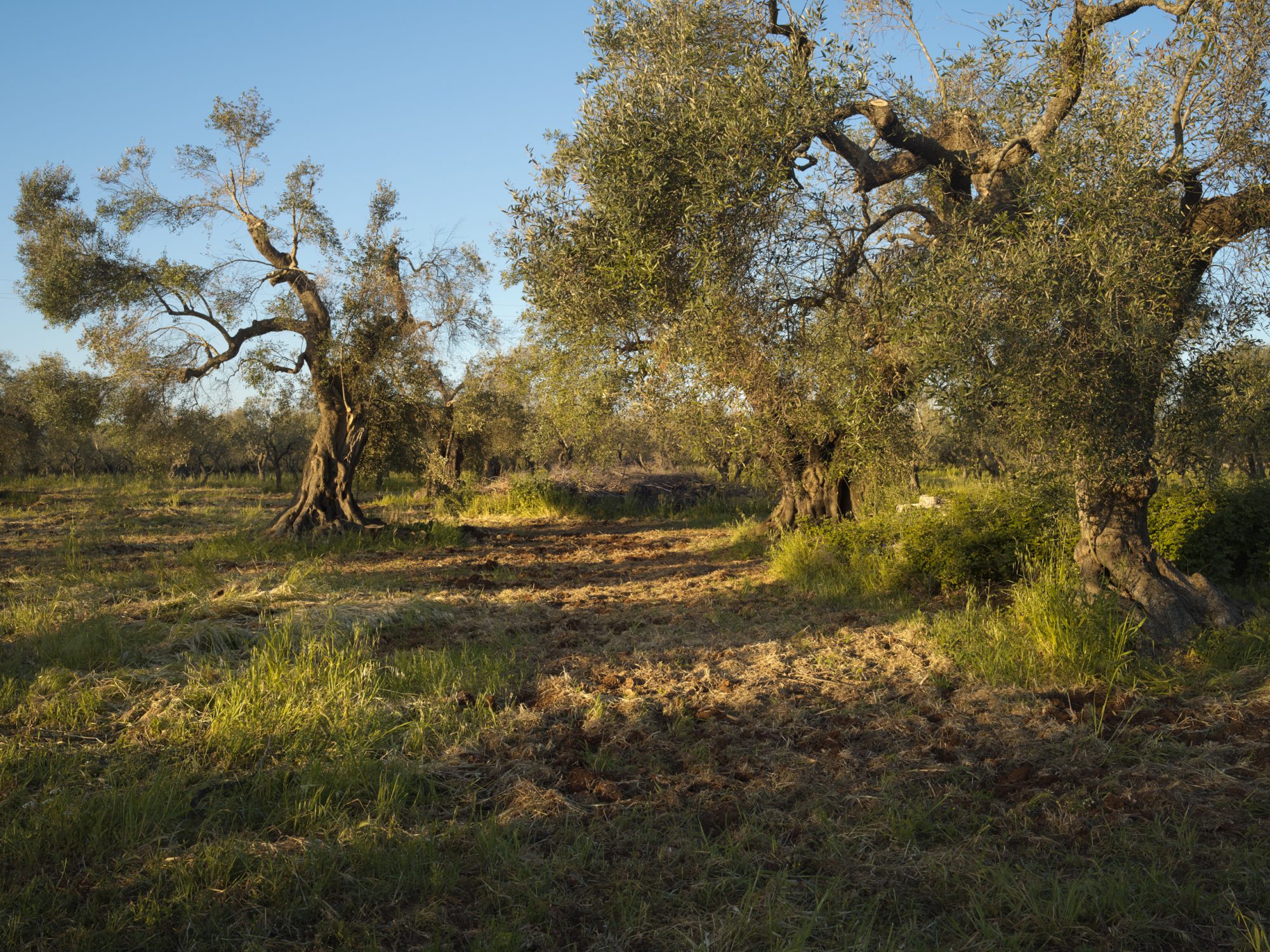
"It’s not the plant that feeds us, it’s the soil that creates the conditions for the plant."
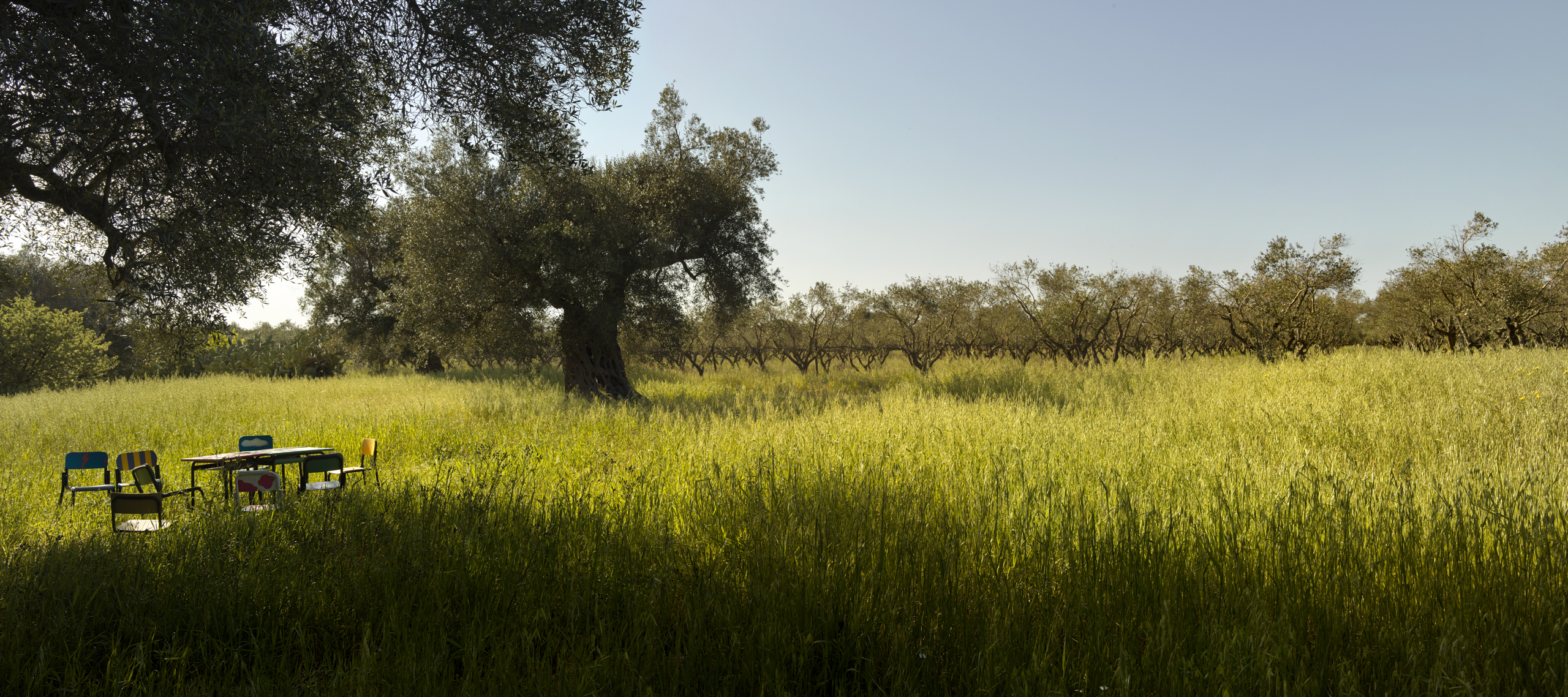
"We think it’s our job to give this asset back to the community."
The farm as classroom
The little tables and chairs were painted by pupils from a local primary school. It’s just one example of how Xfarm tries to involve the community in its projects, from community-assisted agriculture to environmental education, scouting events and music festivals.
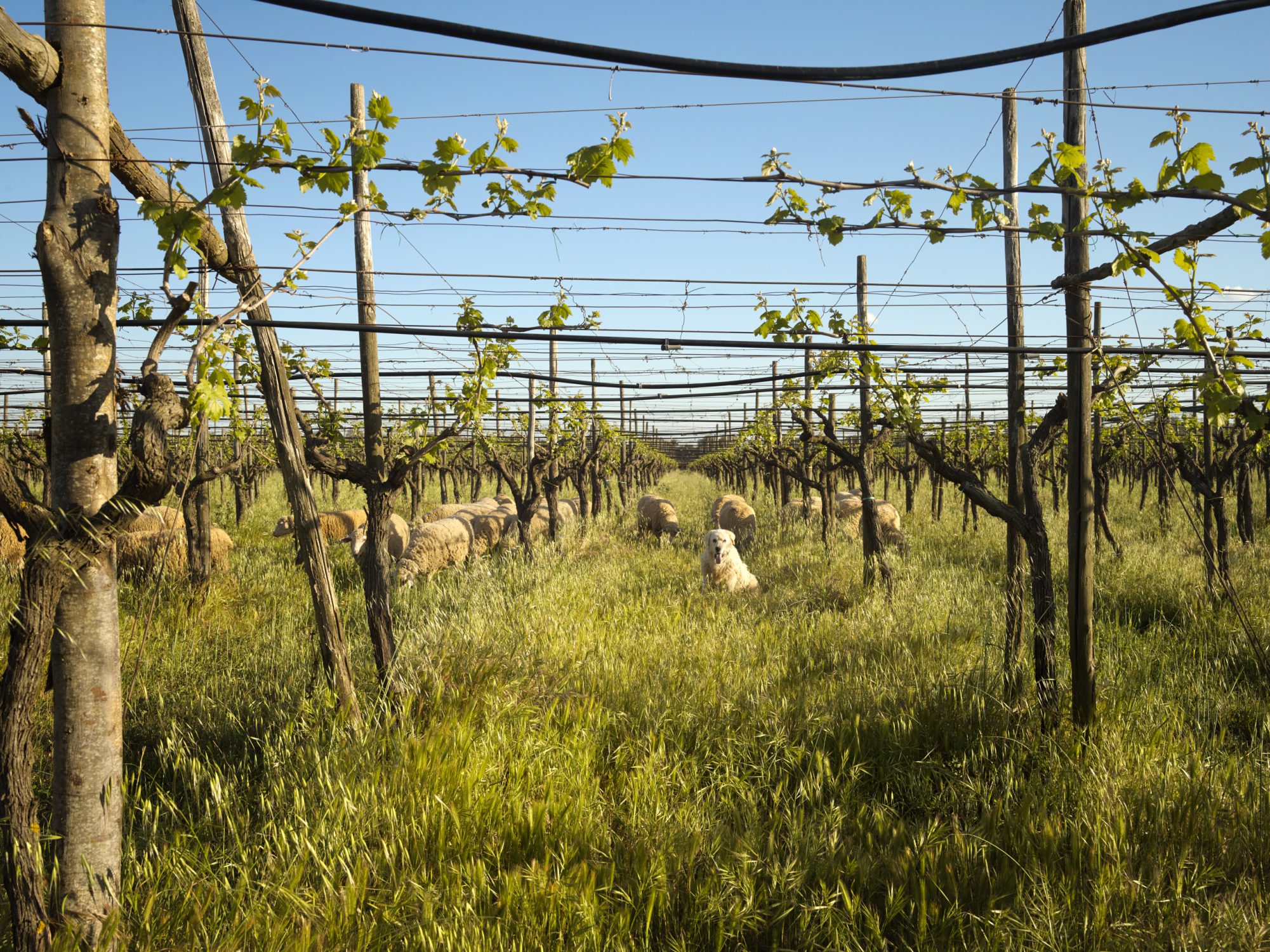
"It’s a circle. Once we change the means of production, we can change the means of distribution and then we can change people’s habits."
The vineyard, where grass and flowers grow and ensure biodiversity, is not mown but grazed by a herd of sheep, again according to the principles of regenerative agriculture. Here it’s a matter of ‘the land feeds the sheep and the sheep feed the land’. These are not Xfarm’s sheep, incidentally, but the neighbour’s. The principle is more or less the same. Xfarm feeds the neighbour’s sheep and the neighbour’s sheep cut the grass.
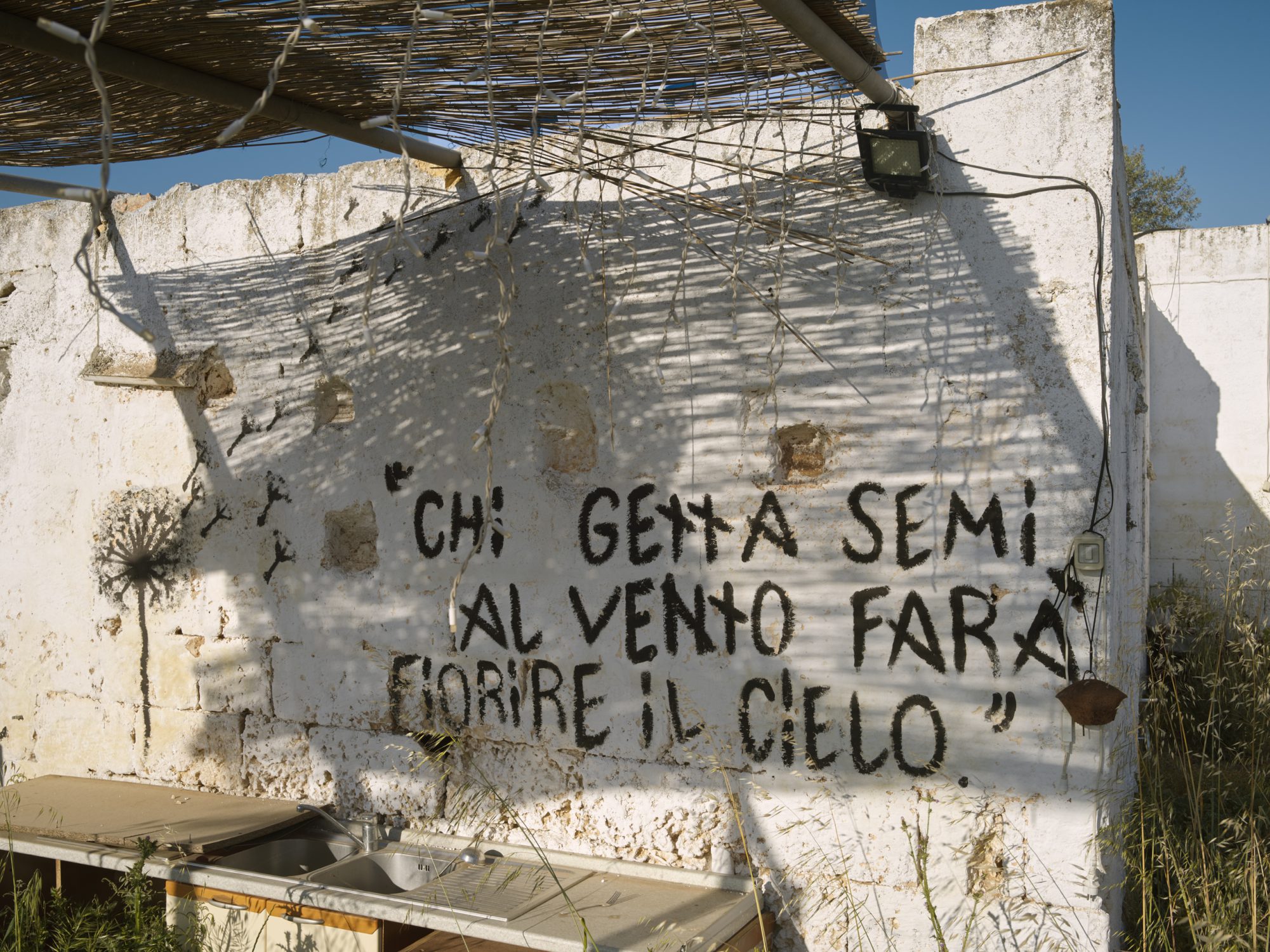
"He who throw seeds into the wind will make the sky bloom."
We have selected another two stories that might inspire you.
